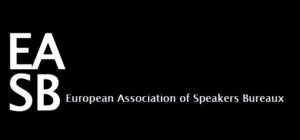James Ashton
The Do's and Don'ts of Virtual Conferences
The retreat home again has dashed many office workers’ hopes of a phased return to normality. Currently lacking is the familiarity of daily routine. Some separation of job and family commitments and the human contact that sparks new ideas and is good for the soul.
Continued distancing from colleagues and clients that will run into 2021 requires fresh ideas to inspire team-working and networking as the novelty of Zoom has long faded.
It is a challenge that extends to the events industry, which makes its money on luring people out from behind their desk to don a lanyard, tour exhibition halls and meet and greet likeminded individuals.
Informa, the FTSE100 exhibitions giant, is pushing back the majority of events scheduled for the beginning of 2021 to a later date as a recovery anywhere other than China has yet to take hold. What is encouraging is that the refunds Informa has distributed stand at less than 15% of the gross cash collected for events. There is a craving for togetherness that means money is being left in the pot in anticipation it will be spent eventually.
At Reed Exhibitions, the expectation is that customers will become more selective as the market gradually comes back. “My feeling is that our exhibitors and our attendees will send fewer people, but the people they send will have a higher band of authority to create or close deals at a show,” Reed’s chief executive Hugh Jones said in a recent blog.
James’s first hand experiences of virtual events
My work as a facilitator and speaker this year has included clients such as Imperial College London, Blenheim Chilcot, Oracle, Havas, the Quoted Companies Alliance and Quantuma. And they have all shared a sense that the show must go on. If an organisation cannot gather its people, partners and prospects in a room for a conference discussion or similar, let technology take the strain.
While the pandemic dampened appetite for many projects, interestingly it opened up new lines of enquiry. Some were from firms who haven’t marketed themselves overtly to potential customers before. After the initial shock of lockdown, business leaders fast discovered that keeping in touch and keeping front of mind – particularly when income was hard to come by – was nearly as important as keeping everyone safe.
As disruption continues, the challenge now is to create virtual events that do not get lost in the fog of webinar fatigue. This is not so different from planning the type of face-to-face forums that feel like they belong to a long-lost time.
Here are five points I keep in mind when hosting business events online – and off:
1 The event needs to focus on a topic that is inviting, relevant to today and will get talked about. However heavy and technical the material threatens to be, the exam question that guides the session needs some lightness of touch.
2 Keep it tight. The event needs to last long enough to address the topic from several angles. It needs to offer guest speakers time to contribute and factor in some audience interaction. Furthermore it needs to create food for thought. In other words, one hour, 90 minutes tops. The advantage of online is that analytics track when attendees switch off.
3 It needs to feature diverse talking heads who an audience actually want to listen to: a subject expert, a practitioner, perhaps a relevant lobby group and someone to front a counter argument. Nothing too abstract. Real life experience is required.
4 It needs facilitating by someone who can use the time well to make a crisp introduction. Will put the subject into context and pull together a conclusion at the end. The host must draw the best from guest speakers through direct questioning and restrict grandstanding as the clock ticks down. An online conference doesn’t need to be fun but it can be enjoyable.
5 Given virtual events are a substitute for physical gatherings, audience interaction is essential. This can be either during proceedings or in time allotted at the end using a chat function or Twitter. It is not much of an ideas exchange if 99% of attendees are kept silent.
About James Ashton
The former City Editor and Executive Editor at the London Evening Standard and Independent titles, James was also City Editor at The Sunday Times and Chief City Correspondent at the Daily Mail. Understandably whilst acquiring such extensive experience as a leading journalist he covered some of the biggest economic and corporate stories of recent times.
Today he is a regular interviewer and columnist for several national newspapers including the Daily and Sunday Telegraph and The Times. He writes on business, leadership, technology and investment. His podcast, ‘Leading with James Ashton‘, features bosses from the worlds of business, charity, the arts and sport swapping stories about how they learnt to lead.
James is a highly sought-after business speaker, business facilitator, conference chair, broadcast commentator, author, media trainer and corporate consultant.
His latest book The Nine Types of Leader How the Leaders of Tomorrow can learn from the Leaders of Today is available to pre-order now
James Ashton can be booked for speaking and event facilitation by holly@thespeakersagency.com or calling +44 (0) 1332 810481








